Business Lending
Go West, MCA Broker
August 16, 2017
If you check out the deBanked forum, one of the latest discussions originated from a self-described newbie business owner who wants to know, ‘What separates a successful ISO from the rest?’ The user, who calls himself jellyfish capital, asks the deBanked universe:
“I’m trying to figure out what the variables are that would dictate a successful brokerage/ISO vs. a shop that has a ton of turnaround and doesn’t make any money and ultimately ends up shutting its doors.”
The answer just might lie in the types of financial products the broker can sell.
MCA Broker Shift
Noah Grayson is managing director and founder of South End Capital, a commercial and investment residential real estate lender launched in 2009 that also started doing SBA loans and MCA consolidation loans in recent years to help out merchants with stacked MCA positions. Grayson pointed to a shift in the types of brokers signing up with the Encino, Calif-based lender.
“We’ve noticed a large number of brokers signing up with us are coming over from the MCA space. They’ve relayed to our staff that competition is too stiff to make enough money only originating MCAs, and they are looking for other avenues to bring in revenue,” Grayson said.
Indeed, South End Capital has seen an influx of brokers from the MCA industry gravitating their way. In fact, there has been more than a 10 percent spike year-to-date versus the same period last year in the number of brokers that discovered South End Capital through some form of Internet origin, such as deBanked, versus a targeted ad in a real estate related publication or through more traditional real estate origination means.
“What we’re hearing from our MCA industry referral partners is that their[customers] now want any option other than an MCA. These brokers are coming to us now because they are trying to evolve their businesses to stay afloat. Offering real estate or SBA loans has proved to be the next logical step for these brokers and it has provided a big bump to our business,” said Grayson.
As in any industry, making a career change can introduce unexpected challenges. A hurdle for the brokers, particularly as it relates to making the jump to commercial real estate lending, has been unrealistic expectations.
“Many MCA brokers have an expectation that real estate or SBA loans will work similarly to an [MCA], but it’s a more involved process. There’s more documentation and more moving parts to understand. There has been a big learning curve for a lot of these brokers — some have been willing to learn and are excited about the opportunity. However, many MCA brokers have proven extremely resistant to change and unable to adapt” noted Grayson.
There are hurdles facing the MCA industry, too.
 Merchant Motivation
Merchant Motivation
So what’s driving the shift? Small businesses, some of which are saddled with short-term obligations, have begun to realize that thanks to the rise of alternative lenders they have more options. Meanwhile unscrupulous collection agencies are throwing a monkey wrench into the situation, making it trickier for merchants to gain access to cash advances.
David Soleimani, CEO of LendFi Corp, said a major setback for the MCA industry has been the interference of collection companies convincing good paying merchants to default and cut their payments in half. By negotiating payments with a third party, merchants essentially become blacklisted from receiving any further MCAs.
LendFi senior account rep Jonathan Meyer specializes in cash advances, term loans, equipment leasing and lines of credit. He’s noticing a trend of more MCA brokers expanding their line of business in the last year.
“Companies are overextended [with cash advances.] It’s a problem,” said Meyer. “If everything is perfect, we can do a term loan or a line of credit if it falls under certain criteria.”
One small business came to LendFi’s Meyer recently and as a result saved himself a lot of cash. “I consolidated someone’s loan recently. I got him a term loan and saved him $14,000 a month. He had two loans at $110,000. I got him a term loan for $165,000 and he saved $14,000 a month. He was paying $22,000 per month,” said Meyer, adding that he also consolidated the payments from a daily to a monthly schedule. “That’s a huge savings,” he said.
For all of the twists and turns that may be up ahead for brokers and merchants alike, one thing seems clear. The MCA industry isn’t going anywhere.
“There will always be a [customer] whose only option is an MCA, and it has its benefits for many. For example, the only way to get business funding in one or two days is with an MCA. However, I think the reasons why someone would need an MCA are becoming fewer and fewer as other more viable financing options emerge,” said Grayson.
PayPal Scoops Up Swift Financial
August 10, 2017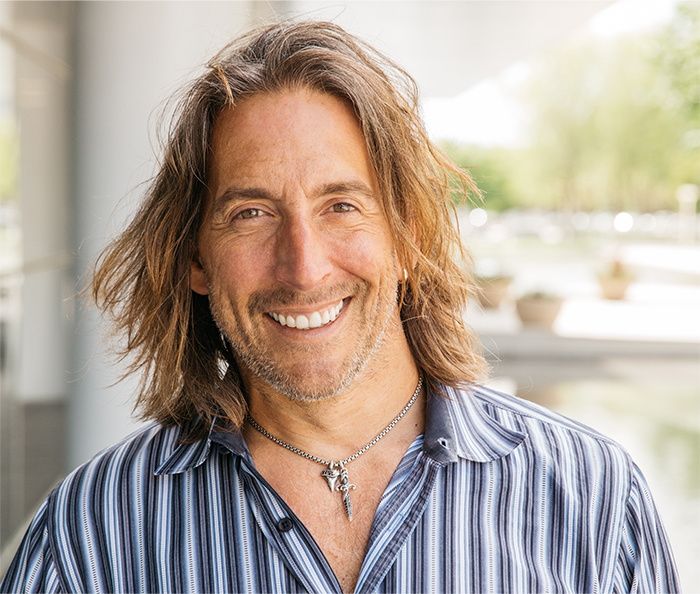
Online lending M&A is under way. PayPal is bolstering its merchant lending capabilities with the addition of Swift Financial. While the deal was kept under wraps, some industry participants heard some buzz about a possible combination.
PayPal has been investing in its lending arm of late, evidenced by the addition of former Amazon executive Mark Britto as senior vice president and general manager of global credit in July.
Noah Grayson, South End Capital managing director and founder, weighed in on the deal.
“A merger of two industry leaders like this is not surprising. As the economy continues to improve and small business owners have access to more financing options, alternative business lenders are going to continue to consolidate to stave off competition, retain deal flow and secure profitability,” said Grayson.
Dave Girouard, founder and CEO at Upstart, a consumer lending platform that uses machine learning, reacted to the deal:
“I expect to see more consolidation in online lending across both consumer and small business in the next year. Platforms with either giant balance sheets or proprietary technology will likely stick around, but others will struggle to compete,” Girouard told deBanked.
Alternative lender LendUp was a recent recipient of a PayPal investment. Sasha Orloff, LendUp’s CEO, had this to say about the deal:
“I’m not surprised to see an acquisition in the fintech credit space and expect this will kick off a wave of acquisitions. PayPal is a force to be reckoned with and we have seen them lead the industry again and again. Whether it is the partner model like with Synchrony, the acquisition model like Swift, Braintree/Venmo, Xoom, or the investment model like LendUp, they are proving again and again why they are leading innovation in financial services decade after decade,” said Orloff.
Meanwhile don’t expect to see a PayPal/LendUp pairing anytime soon.
“For our part, we’re going after a very different market and we’re focused on driving consumer financial inclusion — and we’re very focused on remaining an independent company and helping companies like PayPal and banks offer better products for millennials and the emerging middle class,” Orloff added.
PayPal was already working with Swift on a white-label basis for one of its products, PayPal Business Loan, which is a term loan with structured repayments.
“Swift Financial offers complementary business financing solutions and advanced underwriting capabilities that accelerate our ability to acquire new merchant partners with business financing solutions and to deepen our relationships with existing merchants and channel distribution partners,” said Darrell Esch, VP and Commercial officer, Global Credit, PayPal, pointing to Swift’s advanced underwriting and product capabilities and seasoned management team.
Swift was launched just over a decade ago and has extended loans to 20,000-plus merchants.
Breslow: The Advantage Goes to Scale Players
August 8, 2017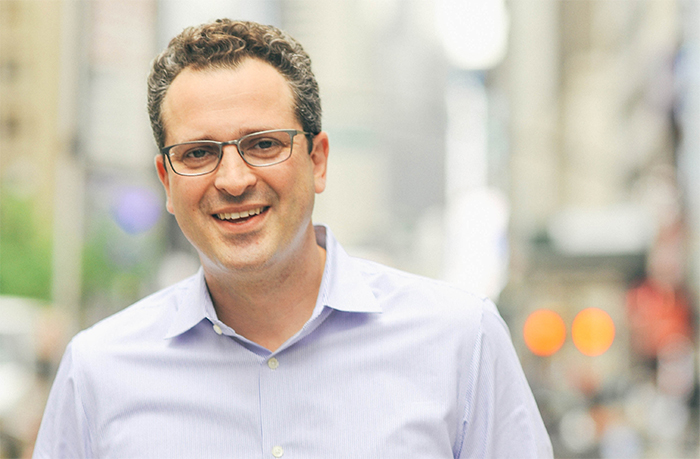
OnDeck’s recent quarter answered a host of questions that surrounded the online lender, touching on everything from market share gains, to year-end profitability, to double-digit loan origination growth on the horizon. Another major growth driver that took the spotlight was the partnership between OnDeck and JPMorgan Chase, which has been cemented with expanded terms.
Noah Breslow, OnDeck’s CEO, told deBanked the partnership, which is bigger than any other relationship the online lender has formed, is firing on all cylinders.
“Ever since the product was introduced in April 2016 we’ve seen nice growth, incredible customer satisfaction and sound credit performance,” said Breslow.
In fact, the Chase partnership has been not only a flagship deal for OnDeck but very possibly the online lending community as a whole.
“We think it’s a harbinger of what’s to come in the space. Chase took a very forward thinking move a year and a half, two years ago when it decided to work with us to build a product,” said Breslow, adding that OnDeck remains in discussions with a number of large financial institutions about providing similar services and capabilities for online business lending.
The partnership, which started off as a pilot program between OnDeck and Chase, is a testament to JPMorgan’s commitment not only to OnDeck but also small business lending, which has taken it on the chin since the financial crisis. Under the new terms the relationship will continue for another four years.
“A whole segment of small businesses doesn’t want to borrow $5 million or $500,000. They want $50,000. The traditional bank lending process is not set up to make loans very efficiently,” said Breslow, pointing to the costs and time involved that cause banks to shy away from doing this.
OnDeck uses a score, dubbed the OnDeck score, that Breslow likens to a FICO score for small businesses. “The OnDeck score is built for our population. It looks at cash flow, personal and business credit, the industry and geography of the business, other debt, taking a holistic view of performance of the business than only FICO and cash flow,” he said.
JPMorgan Chase sets how much risk they want to take or not take with the loans they issue on the OnDeck platform, leveraging both their own data as well as data OnDeck has collected over the past decade of lending. Chase’s small business lending program remains invite-only.
“Small business owners will receive an email or phone call or some other form of solicitation, and then they can come to the website and get approved. We think over the next couple of years Chase will expand the scope of the program, but we’re not talking about how and when they are going to do that,” Breslow said.
OnDeck has taken a series of steps to strengthen the company’s balance sheet in recent months, not the least of which has been to tighten lending standards, which admittedly led to lower loan originations in Q2. Nonetheless the company expects to rebound with double-digit growth in loan originations in 2018, albeit off a low base.
OnDeck has largely completed a cost reduction plan that was started in 1H2017 and essentially removed $45 million in annual expenses from its P&L. “That was a lot of work to take on in a short period of time. We went heads down and got through it. In conjunction with that we rationalized our credit policy and our credit standards to be more conservative to reduce loss rates. The combination of those two moves set the business up to be profitable at the end of the year,” said Breslow.
These steps are resonating with institutional investors, including Mario Cibelli, managing partner at Marathon Partners Equity Management, which has an investment in OnDeck. He characterized the Chase extension as “good stuff.” “I think they had a solid quarter. They’re following through on some of their promises and I’m continuing to monitor our investment,” Cibelli said.
While OnDeck appears to be out of the woods, Breslow shared his perception of the industry.
“The advantages of online lending go to market leaders and scale players. Some folks with lower levels of scale can’t get credit performance right and don’t have enough capital to build out their business,” said Breslow.
With the expanded JPMorgan Chase relationship, gaining scale is on the horizon while some of the hard times appear to be in the rear-view mirror.
“The nice thing is we’re focused on growth again. The message we wanted to communicate yesterday is that we have all the capital we need to lend after the progress we made in the past year. We refinanced $850 million in credit facilities or added new credit facilities. So we have a great balance sheet that’s healthier than it’s ever been from a capital perspective. Now it’s about growing responsibly and profitably as we head into 2018,” said Breslow.
Funding Circle’s Hodges Talks $250 Billion Opportunity
August 3, 2017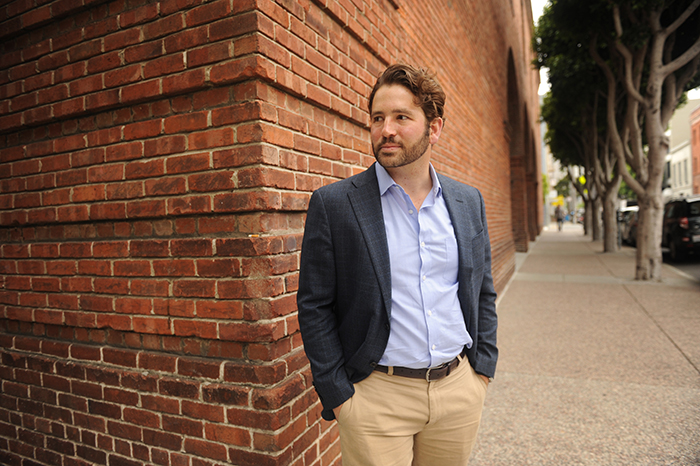 Funding Circle, a marketplace that matches small businesses with lenders, broke a new barrier in the first half of 2017 with an 80 percent spike in global lending by about GBP 800 million. The U.S. marketplace lending arm, which was merged with UK-based Funding Circle in 2013, has experienced rising momentum over the same period.
Funding Circle, a marketplace that matches small businesses with lenders, broke a new barrier in the first half of 2017 with an 80 percent spike in global lending by about GBP 800 million. The U.S. marketplace lending arm, which was merged with UK-based Funding Circle in 2013, has experienced rising momentum over the same period.
Sam Hodges, Funding Circle co-founder and U.S. managing director, told deBanked that small business lending remains an underserved and untapped market, attaching a USD 250 billion value on the annual lending opportunity.
“I co-founded Funding Circle in the U.S. after experiencing firsthand how hard it is for established, successful businesses to access financing from the traditional banking system. The traditional banking system is broken and restricted by legacy issues, and most banks don’t view smaller-ticket commercial lending as their bread and butter.”
Since 2010, when Funding Circle was launched, investors including 60,000-plus individuals, financial institutions and the UK government have poured more than USD 4 billion into 32,000 businesses globally.
Currently the Funding Circle U.S. platform is only open to accredited and institutional investors. “Over time, we would love to offer this investment product to anyone in the U.S.,” said Hodges.
He further explained that Funding Circle marketplace enables investors to diversify their fixed-income portfolios with secured business term loans. All of the loans on the Funding Circle platform are pre-screened with a risk-rating and coupon rate attached, ranging from 4.99 percent to 27.79 percent, by seasoned credit professionals using proprietary data analytics.
“While there will always be some risk attached to any type of investing, Funding Circle concentrates on providing loans to established businesses that have operating history, cash flow and a strategic plan for growth,” said Hodges.
Main Street USA
Funding Circle borrowers have typically been in business for around a decade and generate annual revenue of $2 million with a staff of about 10 people. One key differentiator from the likes of industry giant Amazon Lending is that borrowers on the Funding Circle platform could be brick and mortar shops.
“Amazon is an impressive organization, but what we’re doing is different in a variety of ways. Where they are focused on helping merchants that sell on their marketplace, our borrowers include restaurateurs, gas stations, medical clinics, construction firms, IT consultants and more,” said Hodges.
He went on to describe Funding Circle borrowers: “Walk down Main Street in any American town, and you’ll see examples of our borrowers. These are established businesses who have been underserved by the traditional financial sector — they have assets and cash flow to secure loans, and a legitimate plan for growth. We actually have many borrowers who choose our loans over a traditional bank loan, because they are faster and easier.”
Full Circle
Funding Circle started off the year with a bang, having raised USD 100 million in equity capital to help accelerate growth not only in the U.S. but also the UK and continental Europe. Meanwhile the startup continues to invest heavily in technology and talent.
“We are focused on building a world-class technology platform that can handle millions of transactions daily and deliver a best-in-class customer experience for borrowers and investors,” Hodges told deBanked.
Along those lines, Funding Circle recently bolstered its executive team both stateside and globally, including the recent addition of Sean Glithero as CFO, who is to be based in London when he begins in his new role this fall.
“Sean shares our enthusiasm for building a better financial world by revolutionizing the financial system and securing a better deal for everyone. Sean’s record at Auto Trader, helping drive strong profit growth and shaping a digital marketplace into a dominant position, makes him ideally suited for this role,” Hodges said.
Meanwhile the U.S. executive team is also expanding, evidenced by the recent additions of Joanna Karger as U.S. Head of Capital Markets and Richard Stephenson, who joined as U.S. Chief Compliance Officer.
He is taking the reins of a balance sheet whose UK business achieved profitability in the first half of 2017. “Here in the U.S. we are doing quite well and continue to invest in growth” concluded Hodges.
Marcus Lemonis Rebuked Kabbage on Twitter
August 3, 2017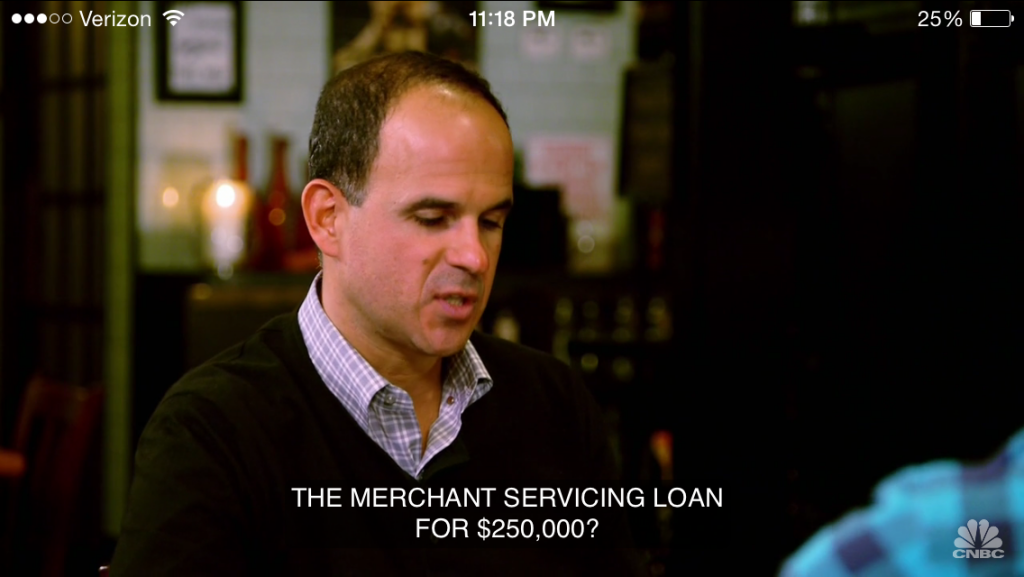
While the fintech community heralded Kabbage’s $250 million Series F round this morning, small business fixer and CNBC TV star Marcus Lemonis was not impressed.
On twitter, Lemonis wrote to Squawk Box host Carl Quintanilla, who was airing a segment about Kabbage, to say that Kabbage charged ridiculous rates. The short rant, which totaled 4 tweets, zinged Kabbage by calling them a lender of last resort and “not a friend of small business.”
Wouldn't call @KabbageInc #kabbage a lender. Ridiculous rates @carlquintanilla @SquawkAlley
— Marcus Lemonis (@marcuslemonis) August 3, 2017
Not a friend of small business. Lender of last resort with fees and rates
— Marcus Lemonis (@marcuslemonis) August 3, 2017
@SoftBank likes the high rate account sweep tactics
— Marcus Lemonis (@marcuslemonis) August 3, 2017
He should be glad I'm not there
— Marcus Lemonis (@marcuslemonis) August 3, 2017
Though Lemonis did not respond to my tweet that asked him if there were any online lenders he thought positively of, he likely is no stranger to the phenomenon. Last year, I pointed out that several small businesses that have appeared on his show, The Profit, have used nonbank alternatives.
In Season 3, Da Lobsta, a Chicago Sandwich shop, reported owing $140,000 to an internet lender and $40,000 to Square.
Square Capital, which has since traded merchant cash advances for actual loans, reported making 49,000 loans to small businesses last quarter alone for a total of $318 million. Kabbage, meanwhile, has lent $3.5 billion to more than 115,000 small businesses in their lifetime.
Square Capital Funded $318M in Q2
August 3, 2017Square’s small business lending arm, Square Capital, issued 49,000 business loans for a total of $318 million in Q2, according to their earnings report. That’s a quarter-over-quarter increase of 26.7% and slightly more than half the loan volume that their rival OnDeck originated in Q1. That statistic is significant because Square is a payment processor first and a lender second while OnDeck is only a lender.
Square had a net loss of $16 million in the second quarter on $552 million in revenue. The stock price has nearly doubled year-to-date, according to the deBanked Tracker.
32% of Square Capital users say they are using the funds to purchase equipment or open a new store. 31% say they are using it to purchase inventory while 23% say it’s to fund day-to-day general & administrative expenses and marketing expenses.
In December 2016, deBanked received a $35,000 loan from Square, the experience of which was detailed in the Jan/Feb Magazine issue.
Tips From the Source: Small Businesses Told deBanked How They Wanted Loans to be Marketed to Them
July 31, 2017
Small business owner Jim Moseley is inundated with calls from online funders—and he hates it. They frequently use unscrupulous tactics to try and get his attention. More than one has claimed to be a close friend so his assistant transfers their call. Then they try to reel him in with stories they’ve concocted about past personal connections. The unprofessional-sounding calls also irk him—where a salesman insists he’s local, but his voice sounds muffled and distant. In these instances, Moseley usually hangs up within a few seconds.
“The layer of sleaze is as thick as lard in the calls that I get,” he says.
Like many small business owners, Moseley, the chief executive of TransGuardian Inc., a shipping solutions company based in Petersham, Massachusetts, finds these types of calls extremely off-putting. In fact, it’s what made him hesitant to do online funding to begin with—until it became absolutely necessary since he couldn’t get a bank loan.
He’s not alone. As online financing proliferates, several small business owners say they are increasingly being bombarded with stacks of snail mail, multiple cold calls a day and numerous unsolicited emails offers—many of which they don’t understand and therefore won’t accept. Rather, small business owners say they prefer to work with companies that are forthcoming, provide sound advice and have taken steps to prove their credibility. They offer several tips on how funders can win more of their business.
Tip No. 1: Can the cold-calls
Several small business owners say they don’t mind when lenders follow up with them after a legitimate interaction. But they could do without the boiler-room tactics.
“It feels like a loan shark situation,” says Sean Riley, co-founder of DUDE Wipes, a Chicago-based company that makes flushable wipes for men. Riley, who has several good experience obtaining loans through Kabbage, finds the constant phone calls from firms he doesn’t know particularly vexing. He suggests lenders drop the high-pressure routines and find more effective ways to promote their services to small businesses. “These companies could be very credible. I don’t know. But I don’t perceive them as credible—and perception is reality,” he says.
Tip No. 2: Step up legitimate marketing efforts
Donna Cravotta chief executive and founder of Social Pivot PR, a Bedford, New York social media and marketing communications firm, says online funders should seek out simple, cost-effective ways to get their name in front of small businesses. For relatively little money they can sponsor local small business events. She also suggests that online lenders volunteer to speak at small business events and teach small businesses how to leverage online lending opportunities. They could also appear as guests on financial podcasts or broadcast Webinars to the small business community, says Cravotta, who has taken a few loans to fund her business, two of which were with Lending Club.
R.T. Custer, co-founder and chief executive of Vortic Watch Company in Fort Collins, Colorado, offers some additional advice: Customers don’t believe when you self-publish your testimonials. When he sees a review on a website, he wants to know how much a company has paid for that review. Instead, he relies on third party confirmations of a company’s worth. “When it’s clearly something that is not paid for, that is the best kind of advertising,” says Custer, an OnDeck customer whose business turns antique pocket watchers into wrist watches.
Tip No. 3: Deliver personal attention
As much as they hate aggressive salespeople, small businesses love personal attention from their lenders. Dana Donofree, founder and chief executive of AnaOno Intimates, a Philadelphia-based company that designs and sells apparel for breast cancer survivors, appreciates the stellar customer service she gets with OnDeck. The sales rep follows up appropriately to make sure everything is going well, but doesn’t bombard her constantly. She gets an occasional email asking if she needs more funds—but the communications aren’t overly aggressive. “Some institutions can really be sales pushy and call you several times a day. I’ve blocked more numbers than I would like to admit,” she says.
Tip No. 4: Be a resource for small business owners
Online lenders can also gain traction by helping customers better understand the financing process; many small business owners often don’t know much about financing and would appreciate getting sound advice from lenders, according to Sandy Lieberman, who co-owns Artemis Defense Institute in Lake Forest, California.
She and her husband started the business a few years ago to offer reality-based training to law enforcement, military personnel and civilians. When the business needed cash, Lieberman began searching online for a bank loan, but wound up taking a merchant cash advance instead. After a few rounds, she started getting bombarded with solicitations. “I think the stacks of mailings from companies must have been four-inches thick,” she recalls.
After additional research, she reached out to Lendio to broker an $85,000 term loan; she later took another loan for $204,000 through Lendio. While these funds have brought her business to a better place—and she has learned a lot in the process—she feels online lenders are missing out on a prime teaching opportunity.
“Some lenders think business owners know more than they already do. Some really don’t know a lot and could use more hand-holding,” she says.
In hindsight, Lieberman—who nearly destroyed her personal credit while trying to run her business—wishes a funding company had offered her a short class on financing; she would have attended, even for a small cost. Access to a finance coach—someone at the lending company who could help business owners plan proactively without ruining their personal credit—would also be a boon, she says.
“Small business owners are wearing many hats—customer service, payroll, financing, strategic planning. In the midst of all that they don’t know necessarily know how to make wise funding decisions,” she says.
Tip No. 5: Advertise
There are plenty of small businesses that need funds, but many simply don’t know where to turn. Consider a TD Bank survey of 553 small business owners in late March that found 21 percent have or will seek a loan or line of credit in the next 12 months. While the majority of these businesses plan to try their bank first, a sizeable number—11 percent—don’t know how to seek credit when they are ready. While many small businesses have found lending partners by Googling for information, others simply feel stymied by the process.
Take the case of Scott Deuty, who is having trouble obtains funds for Coolbular Inc. in Cheyenne, Wyoming, which serves as an umbrella for his kiddie ride business and his writing and publishing services. He wants to raise funds but has bad credit and doesn’t meet the revenue requirements for certain lenders. There are so many lenders; he doesn’t know how to find the right one—or one that might be willing to take a chance on him. “It’s very difficult,” he says.
Deuty’s case is an example of the paralysis that can happen when small businesses don’t know where to turn. It’s an opportunity for alternative funders to gain a leg up by marketing more appropriately to small businesses that may not know they exist—or how to find them.
Custer, of Vortic Watch, reached out to OnDeck for a bridge loan after seeing a television ad that ran during an episode of Shark Tank. He also suggests funders use online advertising to gain broader exposure. “If a business owner is trying to find a loan, they are going to Google, ‘I need a loan,’” he says.
 Tip No. 6: Ramp up business referrals
Tip No. 6: Ramp up business referrals
Another way small businesses hear about lending opportunities is through business referrals. Azhar Mirza, founder of SomaStream Interactive, an e-learning solutions provider in Berkeley, California, says funders should actively seek out more referral partnerships. In 2015, his company couldn’t afford its online marketing costs. Then a lifeline came its way. Mirza received an offer from Google telling him his company was eligible for a loan to help finance the online advertising it was doing through the Google AdWords program. The offer was part of a new pilot program between Google and Lending Club to extend credit to smaller companies that use Google’s business services. SomaStream got access to the funds it needed, but in lieu of cash, the company received advertising credits with Google.
The pilot program between Google and Lending Club ended in the first quarter of 2016, but Mirza believes similar partnerships would be a great tool for online lenders. Certainly for Mirza, the timing was precipitous, he says.
Push notifications from trusted business partners can also be an effective marketing tool, when used in moderation. When Yvonne Denman-Johnson, co-founder of HootBooth Photo Booth, a Lago Vista, Texas, manufacturer of photo booth kiosks, needed money, she happened to receive a notice from Shopify, the company’s e-commerce software and hosting provider, talking about its merchant cash advance services. She has one outstanding advance through Shopify, which she is working to pay off.
Tip No. 7: Be transparent
Denman-Johnson got the funds she needed, but she feels MCA providers need to be more transparent about the effective interest rate—at the advertising stage, not at the approval stage—so small businesses can make more informed decisions without having to do all the calculations themselves. Otherwise, some small businesses might decide not to pursue this form of funding because of the unknowns. Her company almost walked away, but decided to go through the full application process. At this point, Shopify provided the effective interest rate, which was in the 12 percent range. Other funders she researched were in the 30 percent range—which she describes as “outrageously” expensive.
 Indeed, small business owners want to work with funders that outline the terms clearly and offer comparisons. Lisa Ayotte, founder of Soul’y Raw, a specialty pet food provider in San Marcos, California, has had good experiences with Kabbage, On Deck and Fundbox.
Indeed, small business owners want to work with funders that outline the terms clearly and offer comparisons. Lisa Ayotte, founder of Soul’y Raw, a specialty pet food provider in San Marcos, California, has had good experiences with Kabbage, On Deck and Fundbox.
She wishes, however, that all online lenders offer more detailed information about the loan programs they offer on their website—so small businesses can weigh their options before they go through the actual application process. Small businesses want to know, for instance, whether a lender offers debt consolidation. They also want funds to spell out clearly on their websites the various types of loans offered and the underwriting criteria. Ayotte also suggests lenders provide links to online loan calculators so small businesses can understand what the terms mean to them.
Small business owners want to be told like it is. That’s one major appeal of online lending—if you’re going to be turned down, you typically know right away says Ricardo Picon, the co-owner of The Sandwich Shop, a restaurant and catering business in Williamsburg, New York.
He took an $88,000 loan in February issued by Excelsior Growth Fund, a U.S. Treasury-certified Community Development Financial Institution, but in the future, he says he would consider using a different type of online lender. It would depend on the rates, the economic times, monthly payments and closing fees, among other things. “I want transparency. I want to know if they are going to give me the money or not so I can move on. This way there are no false hopes,” he says.
Tip No. 8: Make the process as easy as possible
Small business owners also prefer to work with online lenders that make the process seamless. AJ Saleem, founder of Suprex Learning, a Houston-based private tutoring and test prep company, was proactive about searching for online lending options. He chose a loan with Lending Club in part because the process was so easy. Some applications he started, but never finished because the process was too onerous. With Lending Club, the process was quick, there were fewer questions asked and the funder asked for less documentation than some competitors, Saleem says.
To be sure, rates are really important to small businesses, but they also want to work with funders they feel are on the up-and-up. “We want a square deal,” says Moseley, the chief executive of TransGuardian. “Tell us what the deal is in an honest and professional way and if we like it we’ll do business.”
As Some Alternative Lenders Stumble, Lendio Surpasses New Milestone
July 27, 2017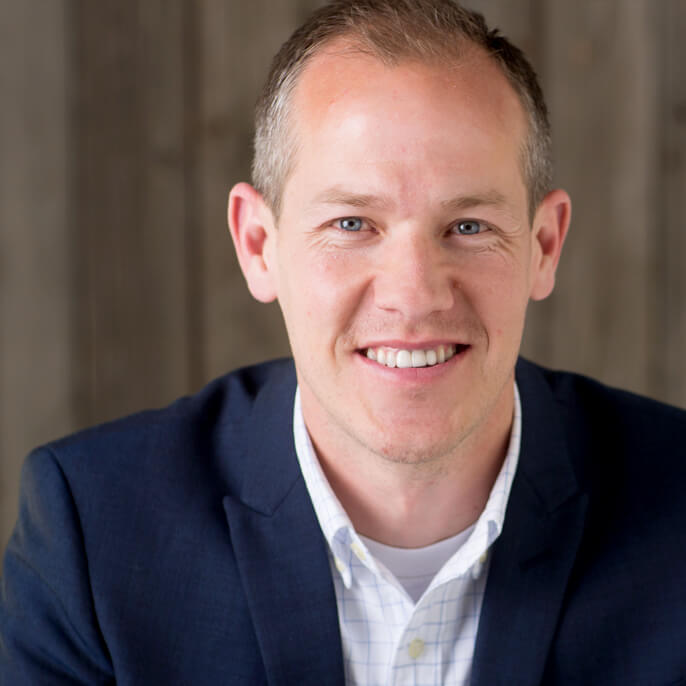 Salt Lake City-based Fintech startup Lendio has surpassed the $500 million threshold for loans originated to U.S. small businesses through its online marketplace. Lendio has been on a tear, evidenced by the fact that much of that amount, or $453 million, was done in the past two years.
Salt Lake City-based Fintech startup Lendio has surpassed the $500 million threshold for loans originated to U.S. small businesses through its online marketplace. Lendio has been on a tear, evidenced by the fact that much of that amount, or $453 million, was done in the past two years.
The loans were distributed to 21,000-small businesses, including a combination of new customers and repeat business, and are a reflection of a few different catalysts.
Lendio CEO and founder Brock Blake told deBanked the drivers of Lendio’s growth are three-pronged, pointing to a strong economy, greater awareness of the Lendio brand and good partnerships.
“There’s never been a better time for small businesses to access capital. There are plenty of options out there. The economy is strong and healthy. Economic indicators suggest business owners are optimistic. They’re looking to get capital for growth,” he said.
Meanwhile awareness of the Lendio brand is on the rise.
“We see that on all of our metrics. People are finding us organically online, searching the name Lendio. We have a huge amount of customer referrals from existing customers. And a lot of repeat business. Our customers are coming back to us every three quarters, on average,” said Blake.
Lendio has become more ubiquitous thanks in part to some major partnership deals, the third leg of the growth stool. For instance, the small business lending startup has inked partnerships with the likes of Comcast, GoDaddy and Staples. This helps the company to compete with the likes of Amazon.
‘All of those partners have a base of small business owners that they then refer to Lendio. They say, ‘if you need financing, here you go. Here’s Staples powered by Lendio. Or Comcast powered by Lendio,’” explained Blake
And that pipeline is filling quickly.
‘We definitely have some really exciting partner deals in the works. I can’t mention names but there are at least three more big names that we’re working on, that we’re excited about,” said Blake.
Tech Platform
Lendio puts the tech in fintech by developing the technology infrastructure that facilitates the loan process, both for the small business owner and the lender. The lending process is similar to LendingTree for personal loans with some notable differences to the customer experience.
Instead of selling off a borrower’s information to lenders, Lendio assigns a funding manager to work with both the borrowers and the lenders. Once the small business owner fills out the application, Lendio then goes to work. The Lendio marketplace is comprised of around 75 different lenders.
“We pull credit. We connect with the credit bureaus. We pull bank statements. We connect with Google Local. We build the technology that has hooks into all borrower data and the lender underwriting engines. We’re trying to marry those two and make it a good experience for both sides,” explained Blake.
Lendio submits the information to three-to-five lenders that will provide the best loan options for that business owner. The lenders then decide whether they choose to underwrite the loan or decline.
“We go to the customer and say we have compiled three offers. Here’s the rate, etc. We present it in a way that they have a choice and they are in the driver’s seat. They work with one group and that’s Lendio. We do all the work,” said Blake.
The process is free to small business owners. Lendio generates revenue at the time the loan closes. “Lenders pay us an origination fee,” Blake explained, adding that the average loan size on the Lendio platform is $26,000. “We do loans as small as a couple thousand dollars and as high as $3 million. But most business owners don’t need a few million,” he said.
The Utah Connection
Utah has been coming up in the headlines a lot lately, mostly due to the fact that a couple of fintech lenders have applied for bank charters in the state. For Lendio, The Beehive State happens to be where Blake calls home.
“Utah isn’t necessarily the place to go and attract huge amounts of small business owners from a population standpoint. But from an economic and business perspective, it is a great state to do business in, very entrepreneurial. That’s the reason why bank charters set up shop here in Utah. It’s very business friendly. And the economy is extremely healthy,” said Blake, adding that the mountains and the skiing are great selling points for attracting top fintech talent everywhere from Silicon Valley to Chicago.
Future Growth
Lendio is a private company, and while Blake would not cross an IPO off of his list he wouldn’t say it’s something the fintech startup is pursuing right now.
“We’ve got an aggressive growth plan and we’ve got a strategy for how to execute and make it happen. We’re heads down to build a great business and see what the future holds for us as far as going public. But it’s not on our radar now,” said Blake.





























